written by David Steffen
The Talos Principle is an FPS-style puzzle game with a philosophical science fictional storyline, developed by Croteam in December 2014.
The game begins as you, a new being, wake up into existence with the disembodied voice of a god-like being that known as Elohim. Elohim sets you on a series of puzzles in different segments of Elohim’s temples to prove your devotion, to earn yourself eternal life. As you go, you find messages left by previous pilgrims who have gone on the same quest before.
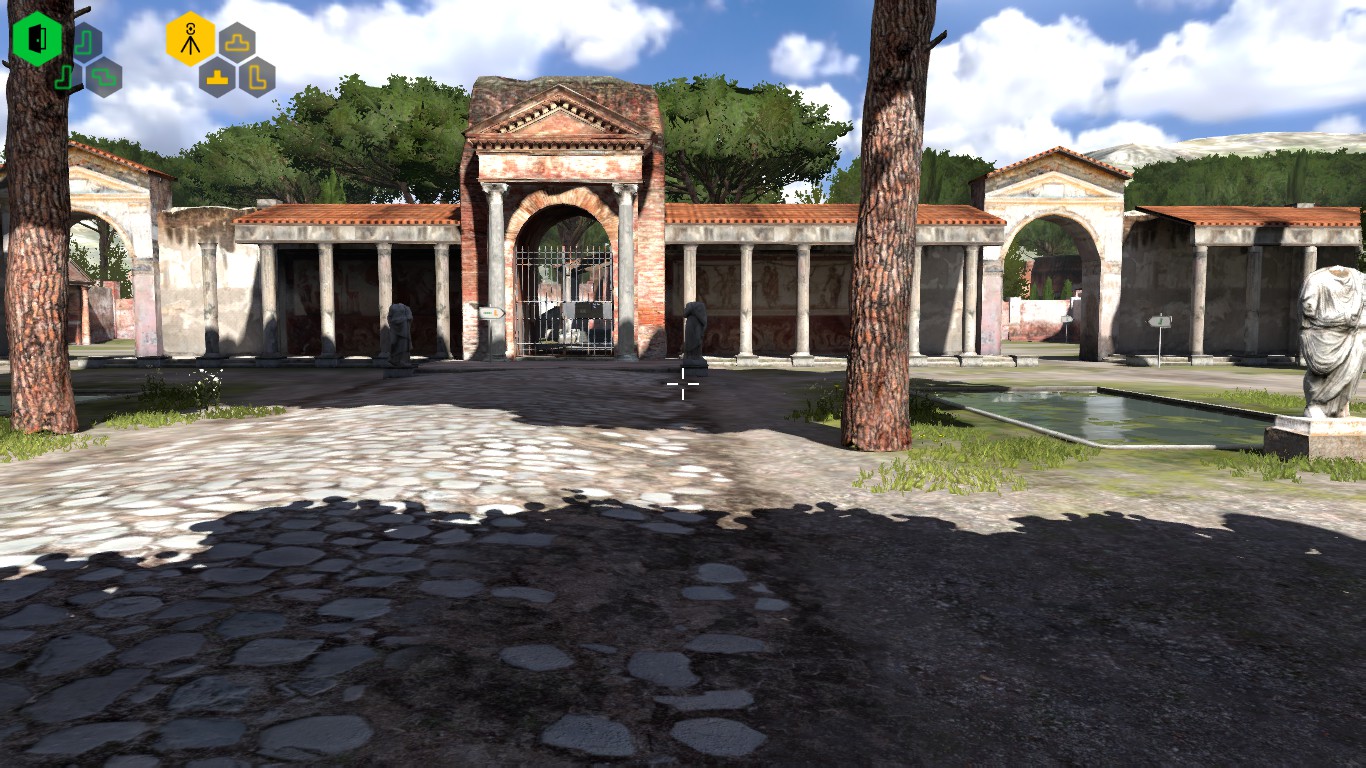 There are signs that this world is artificial (such as segments of wall fuzzing out, and that the messages from other pilgrims are in the form of QR codes). From time to time you find consoles that are supposed to be connected to the internet, but the net connection is down–you can still see fragments of locally stored files. You try to restore your internet access by working through the Milton Library Assistant which seems to be a little odd.
There are signs that this world is artificial (such as segments of wall fuzzing out, and that the messages from other pilgrims are in the form of QR codes). From time to time you find consoles that are supposed to be connected to the internet, but the net connection is down–you can still see fragments of locally stored files. You try to restore your internet access by working through the Milton Library Assistant which seems to be a little odd.
The puzzles in the game are focused on finding puzzle pieces that are locked behind barriers so that you have to make it past closed gates or hostile security elements (like mines or gatling guns).
An example of a couple of the items used in puzzle elements throughout the game that I thought were particularly interesting:
- Disruptor: A tripod-based device that can be pointed at some other kind of device to disable it. This includes electronic gates, so that you can pass through, mines or guns so that you can pass by them without harm. It has its limitations, such as only being able to disrupt one device at a time, and can only actively disrupt something while the tripod is planted (so, for instance, you can’t carry a disruptor through a gate that is being held open by the disruptor, because picking up the disruptor turns it off). And you have to have a line of sight.
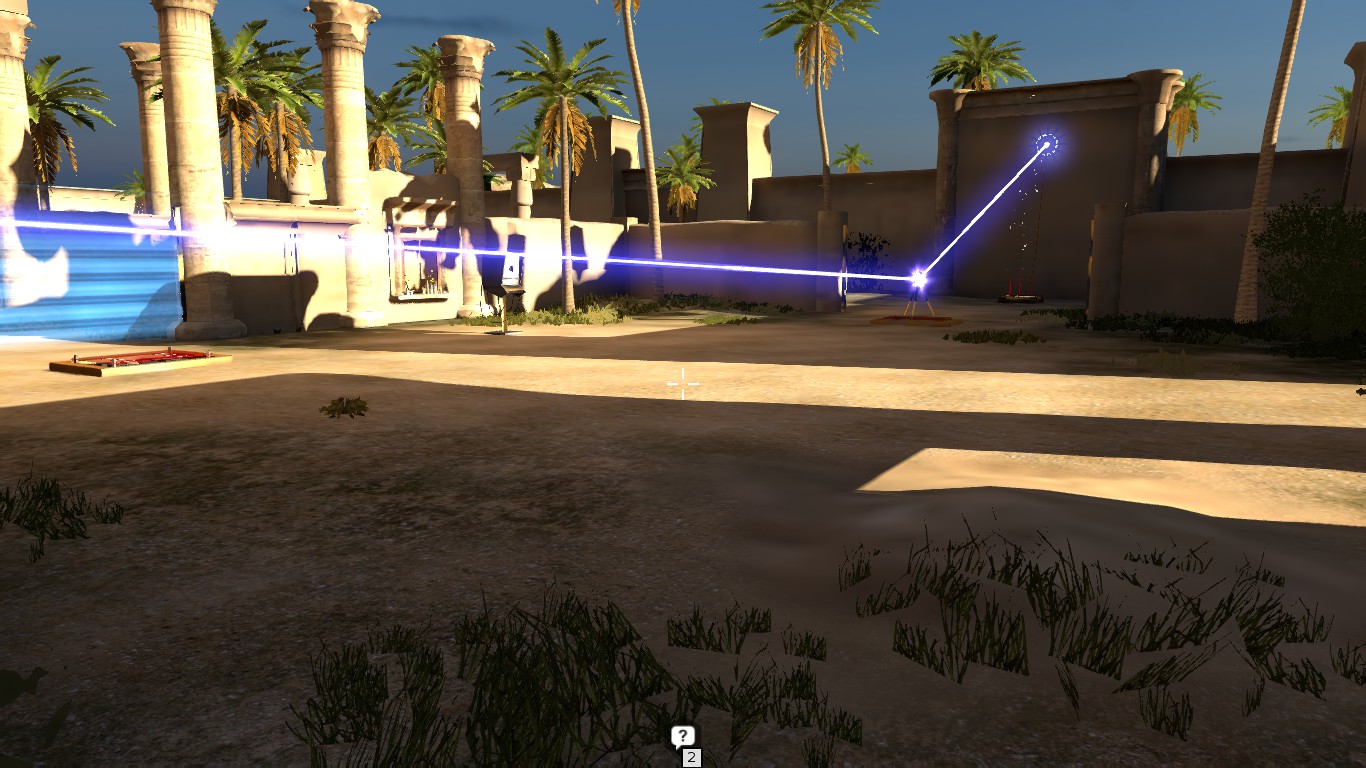 Connector: A tripod-based device that can transmit an energy beam from a source to an arbitrary number of receivers. These can be used to open certain kinds of gates or power other devices. And you have to have a line of sight.
Connector: A tripod-based device that can transmit an energy beam from a source to an arbitrary number of receivers. These can be used to open certain kinds of gates or power other devices. And you have to have a line of sight.
As the game goes on, the main obstacle is the puzzles themselves, but a large part of the game is also the theological/philosophical side of the story. Elohim’s instructions discourage exploration, claiming he knows what’s best for you (he is your god after all, or claims to be). But does he know what’s best for you? What is going on in the outside world? When the Milton Library assistant tries to determine if you are human… are you human? Should you pass the test at all?
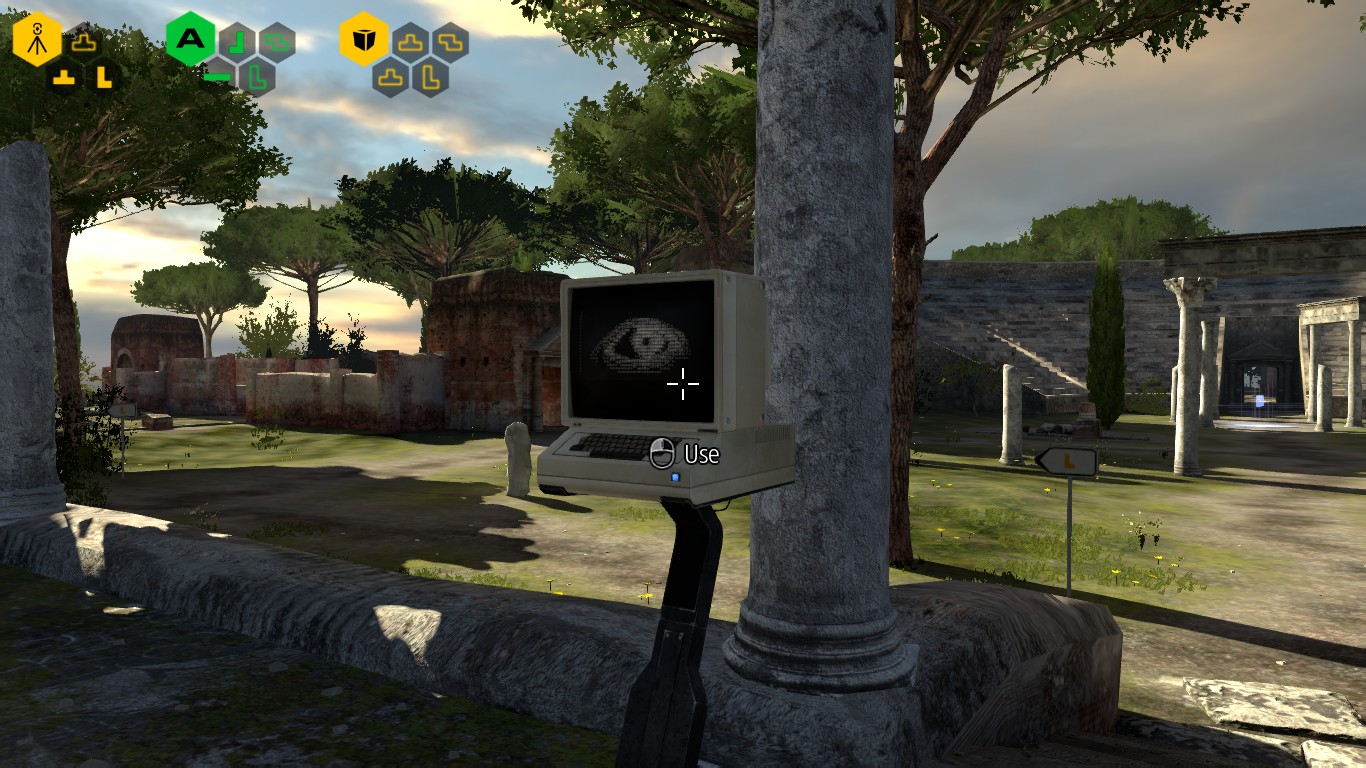 Visuals
Visuals
Nothing particularly flashy by today’s standards. The look is relatively simple, but functional.
Audio
Quite liked the voice-acting, which mostly was two voices–the voice of Elohim speaking to you directly, and stored recordings from one of the researchers.
Challenge
It had what I would consider a reasonable level of challenge. Many of the puzzles I could solve with just a bit of experimentation. There were some major head-scratchers that took me quite a bit of time to work through, but I did solve every one without using a walkthrough, so that to me was a very satisfying level. Only a small portion of the game had a time limit, so you generally will have all the time you need to fiddle with all the elements of a puzzle to figure out how you want to approach it and to do some trial-and-error.
Story
Good story. Had a sort of golden age SF feel to it, while also having an interesting puzzle element that was sortof unrelated, and also having the conversational puzzles of dealing with the Milton Library Program.
Session Time
Mostly pretty short. The game auto-saves whenever you enter a puzzle area, solve a puzzle, or when you pass from certain areas, so you can shut the game off at any time without worrying about losing progress. The only exception is that some puzzles are complicated enough that it takes some time to set them up to be solved, and if you shut off in the midst of that you’ll lose your progress–and there’s a segment near the end of the game that you have to complete all at once, but that’s unusual.
Replayability
There’s certainly some replayability. There are collectible stars that you can find in certain puzzles if you explore beyond the strictly necessary areas. These stars can then be used to access locked areas of the game (I don’t actually know what’s in them, as I haven’t taken the time to go try to track all of them down, I tried for a bit but found it tedious since there’s no way to tell exactly where to look I spent a lot of time wandering and not accomplishing anything, which when you’ve only got small windows of playtime gets old fast.
Originality
Reasonably original. The set of items used to solve puzzles was an interesting set, especially the focusing crystals. What really made the game interesting though was as a whole, with the god-like figure of Elohim constantly pushing and prodding, and the Milton Library Assistant acting as a counterpoint to Elohim’s supposed wisdom.
Playtime
It took me about 20 hours according to Steam? I spent a disproportionate amount of time on a few puzzles, determined to solve them without help. And I spent some time looking for stars before giving up.
Overall
Enjoyable puzzle game which also has a branching conversation element in the talks with the Milton Library Assistant. Golden age SF feel to the main plot as you try to figure out what’s going on, how much you can trust various players in the system, and so on. For me it was the perfect level of challenge, enough so that it took some effort, but not so hard to be unsolvable.$40 on Steam.

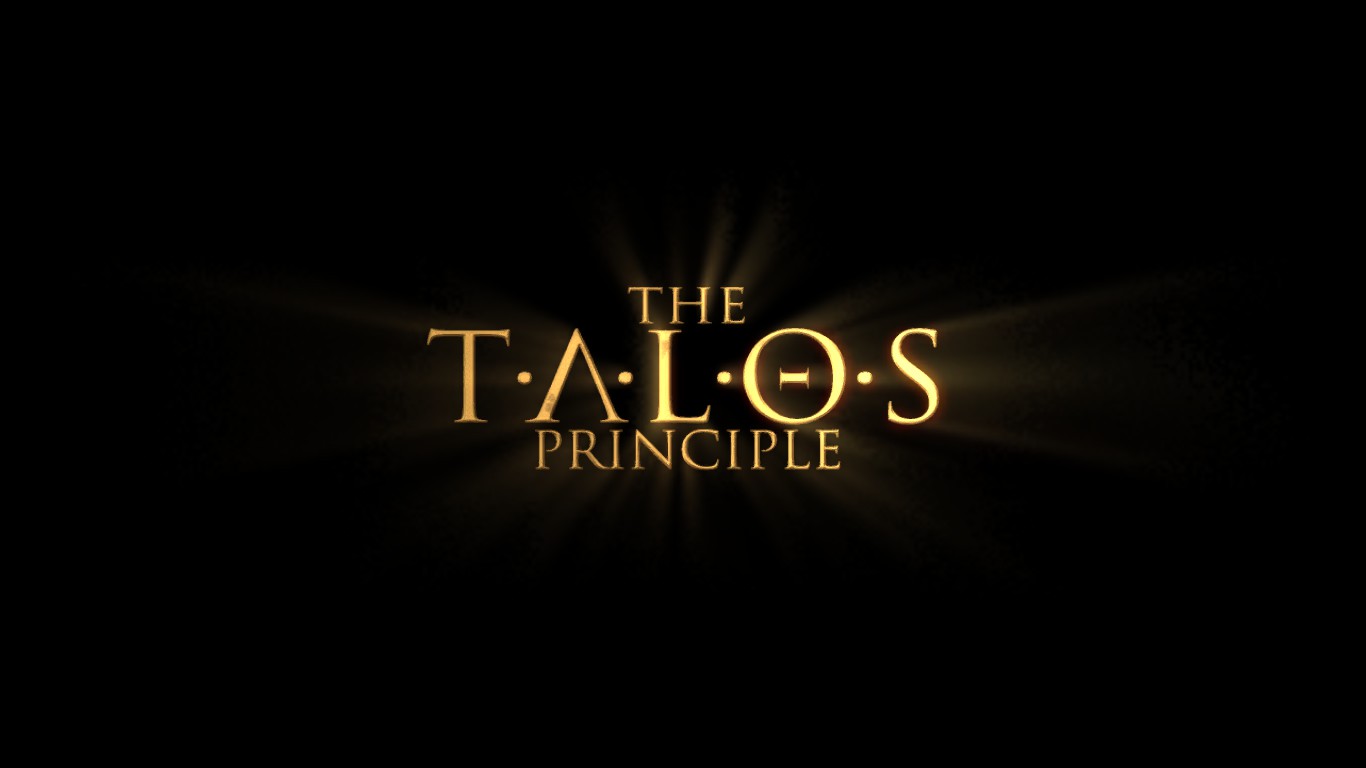
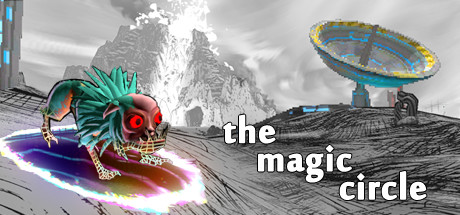
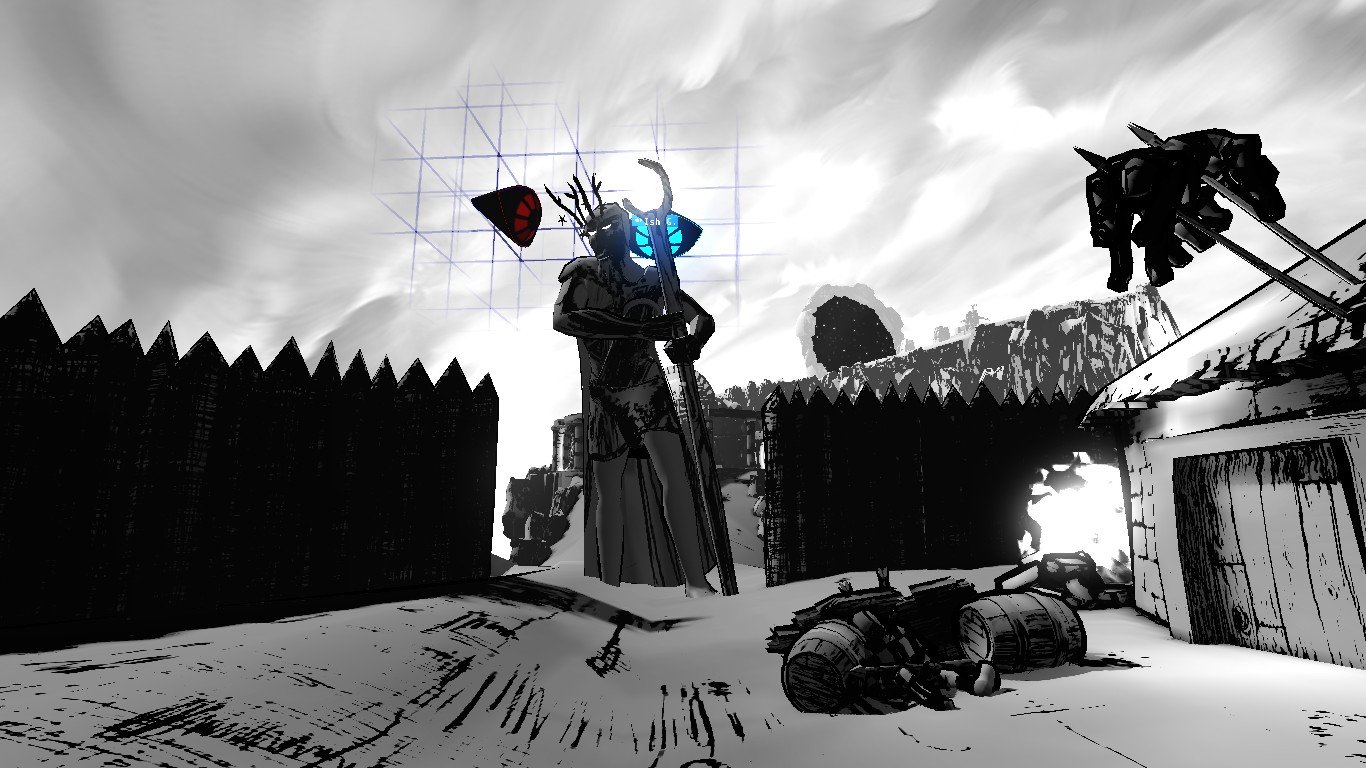
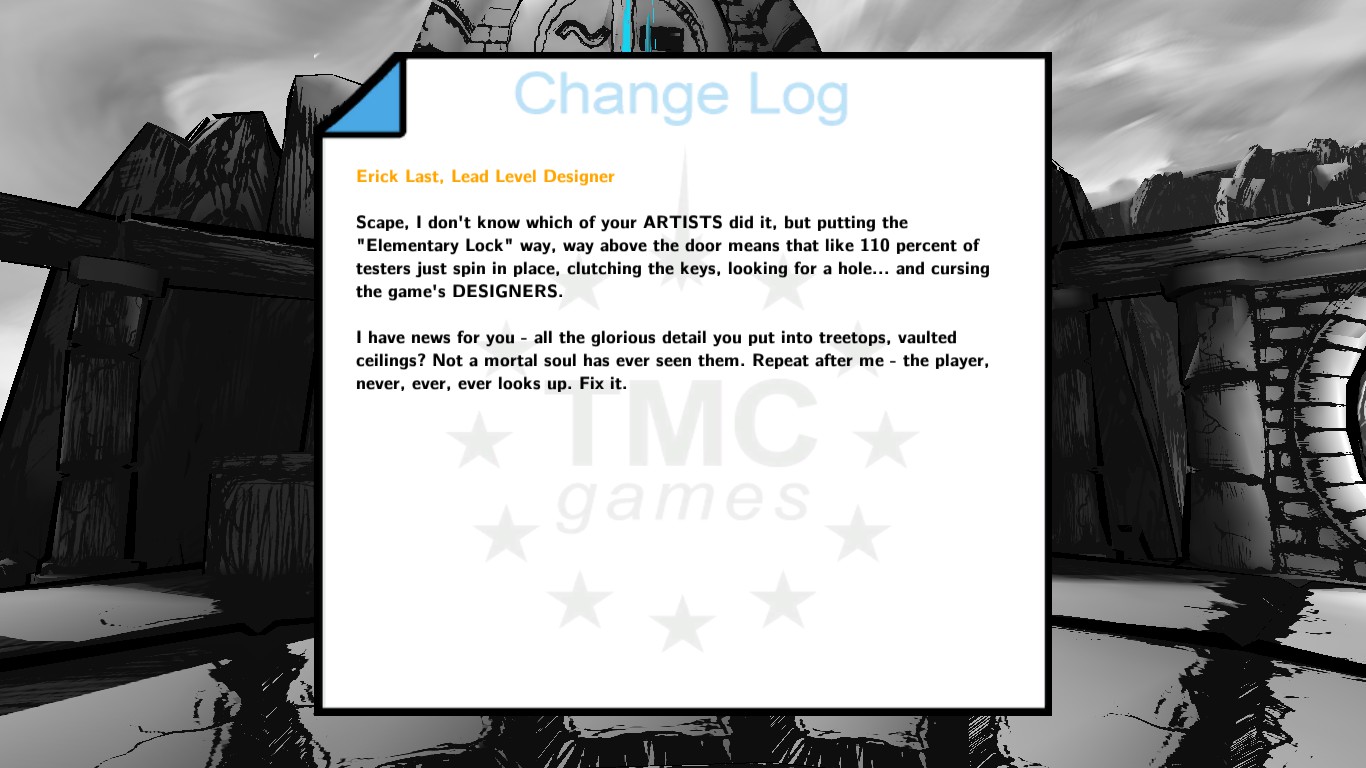
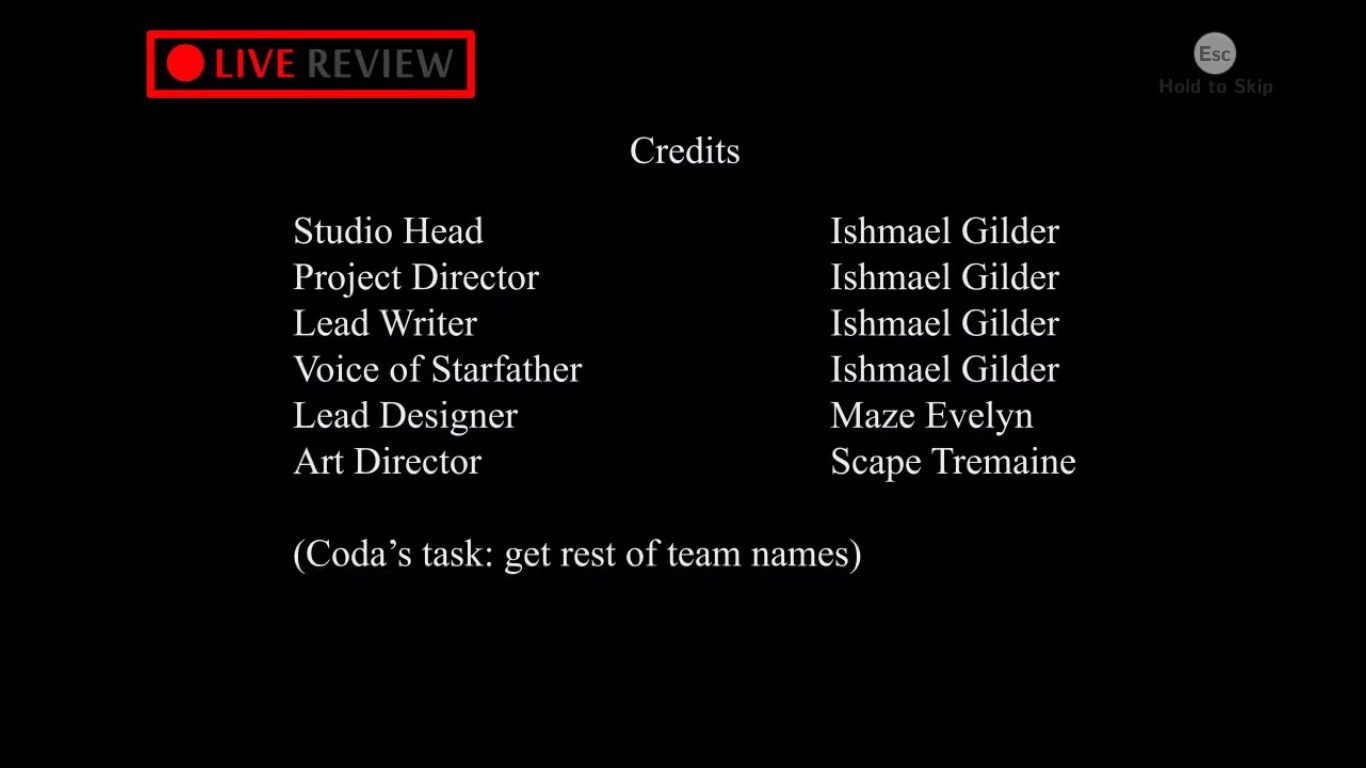
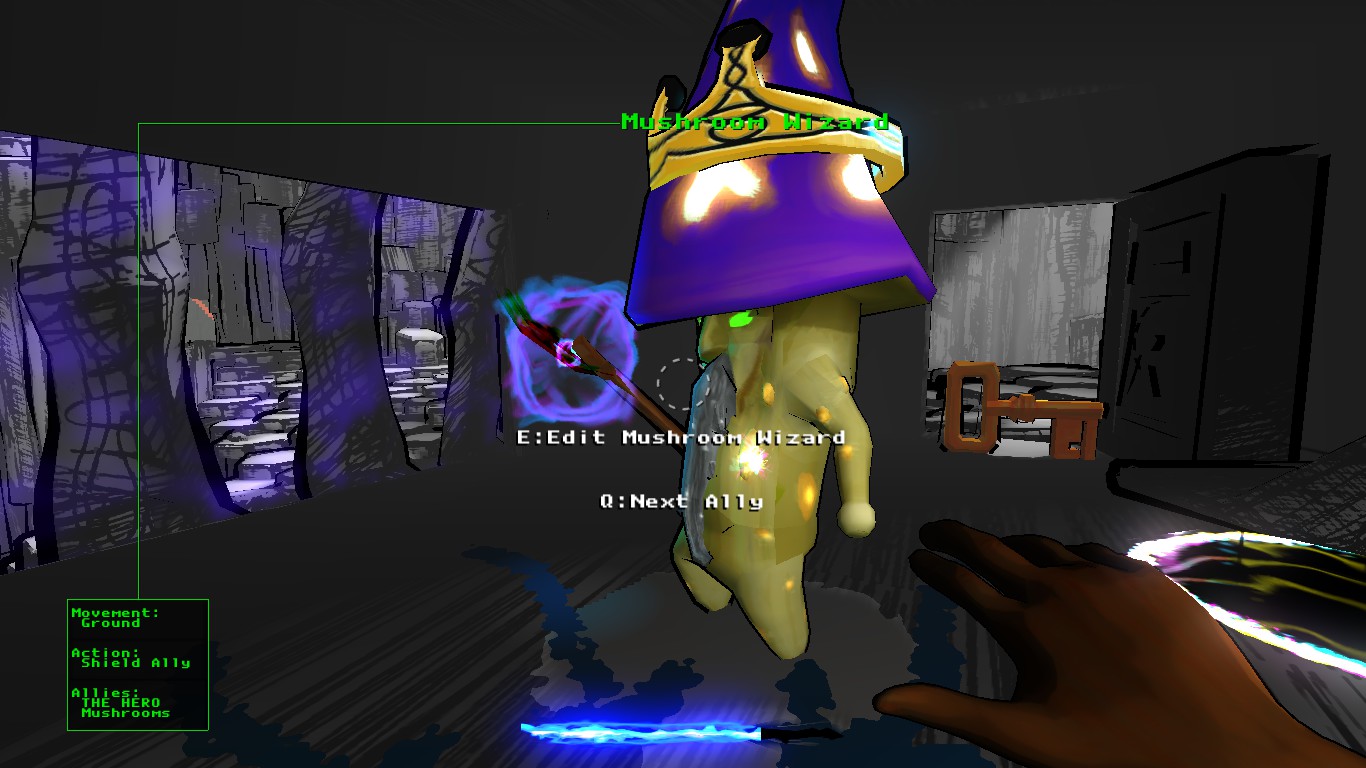
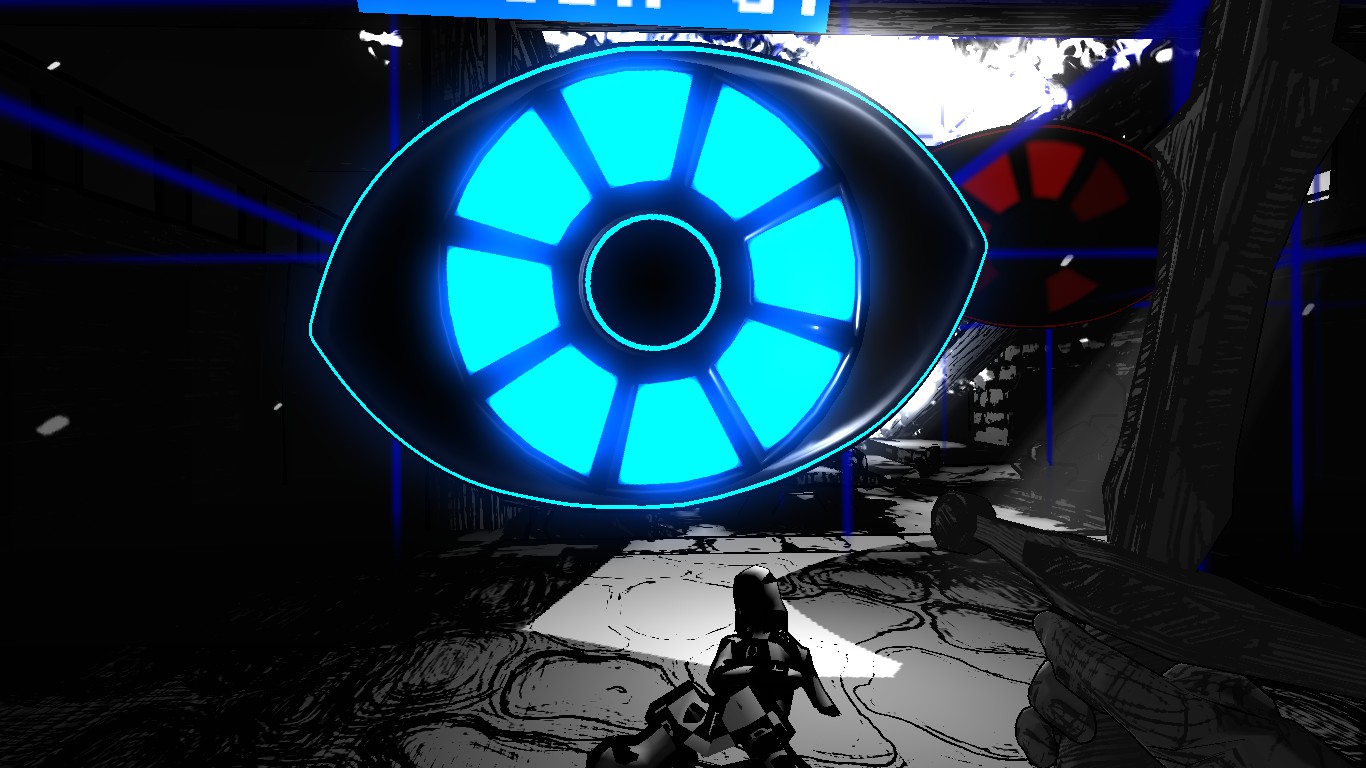 The mysterious voice has a vendetta against the Sky Bastards, which is what he calls the programmers (because they manifest in the game as floating polygonal eyes with rotating wait logo for irises, and he wants to use you to get revenge against them.
The mysterious voice has a vendetta against the Sky Bastards, which is what he calls the programmers (because they manifest in the game as floating polygonal eyes with rotating wait logo for irises, and he wants to use you to get revenge against them.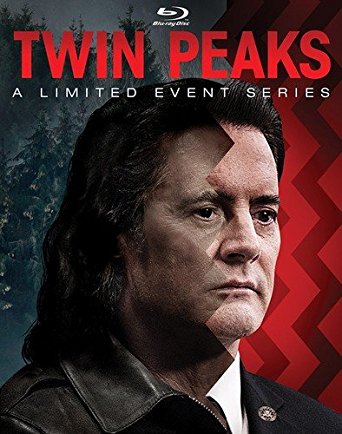
 Hotel Transylvania 3 is a 2018 computer-animated children’s comedy produced by Sony. The legendary vampire Dracula (Adam Sandler) is running a successful hotel for monsters in Transylvania with his daughter Mavis (Selena Gomez) and her husband Johnny (Andy Samberg), but he is feeling lonely and depressed that he hasn’t found new love since the death of his wife, although he believes in soulmates so feels that he has already met his one true love (which he describes as “Zing”). Mavis senses his mood, but attributing it to overwork, decides to plan a family vacation, taking a monsters-only cruise. But on the cruise he gets the “Zing” when he meets the ship’s captain Ericka and with this newfound interest, he tries to woo her, not knowing that she is a descendant of Abraham Van Helsing, who had been his nemesis long before, and that she has planned this cruise as a way to trap him and his other monster-kind.
Hotel Transylvania 3 is a 2018 computer-animated children’s comedy produced by Sony. The legendary vampire Dracula (Adam Sandler) is running a successful hotel for monsters in Transylvania with his daughter Mavis (Selena Gomez) and her husband Johnny (Andy Samberg), but he is feeling lonely and depressed that he hasn’t found new love since the death of his wife, although he believes in soulmates so feels that he has already met his one true love (which he describes as “Zing”). Mavis senses his mood, but attributing it to overwork, decides to plan a family vacation, taking a monsters-only cruise. But on the cruise he gets the “Zing” when he meets the ship’s captain Ericka and with this newfound interest, he tries to woo her, not knowing that she is a descendant of Abraham Van Helsing, who had been his nemesis long before, and that she has planned this cruise as a way to trap him and his other monster-kind. Hotel Transylvania 2 is a 2015 computer-animated children’s comedy produced by Sony. The Legendary vampire Dracula (Adam Sandler) runs a hotel in Transylvania with help from his daughter Mavis (Selena Gomez) and her human boyfriend Jonathan (Andy Samberg). Mavis and Jonathan get married and have a baby they name Dennis (Asher Blinkoff) who is adorable and lovable and apparently very very human to Dracula’s chagrin, because he thinks that his vampiric blood is very strong and will make any of his descendants very vampiric as well. The common knowledge is that vampire kids have to show their fangs for the first time by the time they turn five or they will never show them at all, so Dracula is determined to show Dennis the vampire life and make the fangs show.
Hotel Transylvania 2 is a 2015 computer-animated children’s comedy produced by Sony. The Legendary vampire Dracula (Adam Sandler) runs a hotel in Transylvania with help from his daughter Mavis (Selena Gomez) and her human boyfriend Jonathan (Andy Samberg). Mavis and Jonathan get married and have a baby they name Dennis (Asher Blinkoff) who is adorable and lovable and apparently very very human to Dracula’s chagrin, because he thinks that his vampiric blood is very strong and will make any of his descendants very vampiric as well. The common knowledge is that vampire kids have to show their fangs for the first time by the time they turn five or they will never show them at all, so Dracula is determined to show Dennis the vampire life and make the fangs show. Hotel Transylvania is a 2012 computer-animated children’s comedy by Columbia Pictures. The legendary vampire Dracula (Adam Sandler), after the death of his wife at the hands of humans, raises his daughter Mavis (Selena Gomez) as a single parent. Frightened of violent and unpredictable humanity, he has made a life for them by founding a five-star hotel in Transylvania just for monsters, and telling Mavis constant horror stories about the human world so she won’t to go. But it’s her 118th birthday now, which means she can make her own decisions and for some reason she still wants to go out into the world. To make matters worse, a human named Jonathan (Andy Samberg) somehow finds his way to the hotel and is not scared away by the monsters, and Jonathan and Mavis hit it off.
Hotel Transylvania is a 2012 computer-animated children’s comedy by Columbia Pictures. The legendary vampire Dracula (Adam Sandler), after the death of his wife at the hands of humans, raises his daughter Mavis (Selena Gomez) as a single parent. Frightened of violent and unpredictable humanity, he has made a life for them by founding a five-star hotel in Transylvania just for monsters, and telling Mavis constant horror stories about the human world so she won’t to go. But it’s her 118th birthday now, which means she can make her own decisions and for some reason she still wants to go out into the world. To make matters worse, a human named Jonathan (Andy Samberg) somehow finds his way to the hotel and is not scared away by the monsters, and Jonathan and Mavis hit it off. I’d venture to guess that most people are at least familiar with the premise of Freaky Friday from one of its incarnations or another. In each of the Freaky Friday movies, a mother and a daughter underestimate the challenge of the other’s life until they magically switch bodies for a day and have to deal with the other’s challenges firsthand. The first Freaky Friday movie was released in 1976, starring Barbara Harris as the mother and Jodie Foster as the daughter. The second Freaky Friday movie was released in 2003, starring Jamie Lee Curtis as the mother and Lindsay Lohan as the daughter. A new Freaky Friday movie came out in 2018, starring Heidi Blickenstaff as the mother, and Cozi Zuehlsdorff as the daughter. The movie are linked only by the premise and the title, having no other continuity between them. Unlike the previous films, this one is a musical, and a premiere directly on the Disney Channel.
I’d venture to guess that most people are at least familiar with the premise of Freaky Friday from one of its incarnations or another. In each of the Freaky Friday movies, a mother and a daughter underestimate the challenge of the other’s life until they magically switch bodies for a day and have to deal with the other’s challenges firsthand. The first Freaky Friday movie was released in 1976, starring Barbara Harris as the mother and Jodie Foster as the daughter. The second Freaky Friday movie was released in 2003, starring Jamie Lee Curtis as the mother and Lindsay Lohan as the daughter. A new Freaky Friday movie came out in 2018, starring Heidi Blickenstaff as the mother, and Cozi Zuehlsdorff as the daughter. The movie are linked only by the premise and the title, having no other continuity between them. Unlike the previous films, this one is a musical, and a premiere directly on the Disney Channel. Ant-Man and the Wasp is a 2018 superhero movie based on the Marvel comics characters of the same names, and
Ant-Man and the Wasp is a 2018 superhero movie based on the Marvel comics characters of the same names, and  Ant-Man is a 2015 superhero film based on the Marvel comics characters of the same name. Hank Pym (Michael Douglas) is the inventor of a suit that allows the wearer to shrink and grow. When the wearer is small, their punches land with the same force as when they’re full size, but concentrated onto the area of a pinhead. Pym worked for S.H.I.E.L.D. using the suit until 1989 when he resigned when he learned that they were trying to replicate the suit technology for military applications, and started his own company: Pym Technologies. In the present, Pym’s daughter Hope Van Dyne (Evangeline Lilly) is working with Pym’s former protege Darren Cross (Corey Stoll), to force Pym out of his own company. Cross is determined to reverse-engineer Pym’s shrinking suit, and keeps on trying despite failure after failure.
Ant-Man is a 2015 superhero film based on the Marvel comics characters of the same name. Hank Pym (Michael Douglas) is the inventor of a suit that allows the wearer to shrink and grow. When the wearer is small, their punches land with the same force as when they’re full size, but concentrated onto the area of a pinhead. Pym worked for S.H.I.E.L.D. using the suit until 1989 when he resigned when he learned that they were trying to replicate the suit technology for military applications, and started his own company: Pym Technologies. In the present, Pym’s daughter Hope Van Dyne (Evangeline Lilly) is working with Pym’s former protege Darren Cross (Corey Stoll), to force Pym out of his own company. Cross is determined to reverse-engineer Pym’s shrinking suit, and keeps on trying despite failure after failure.